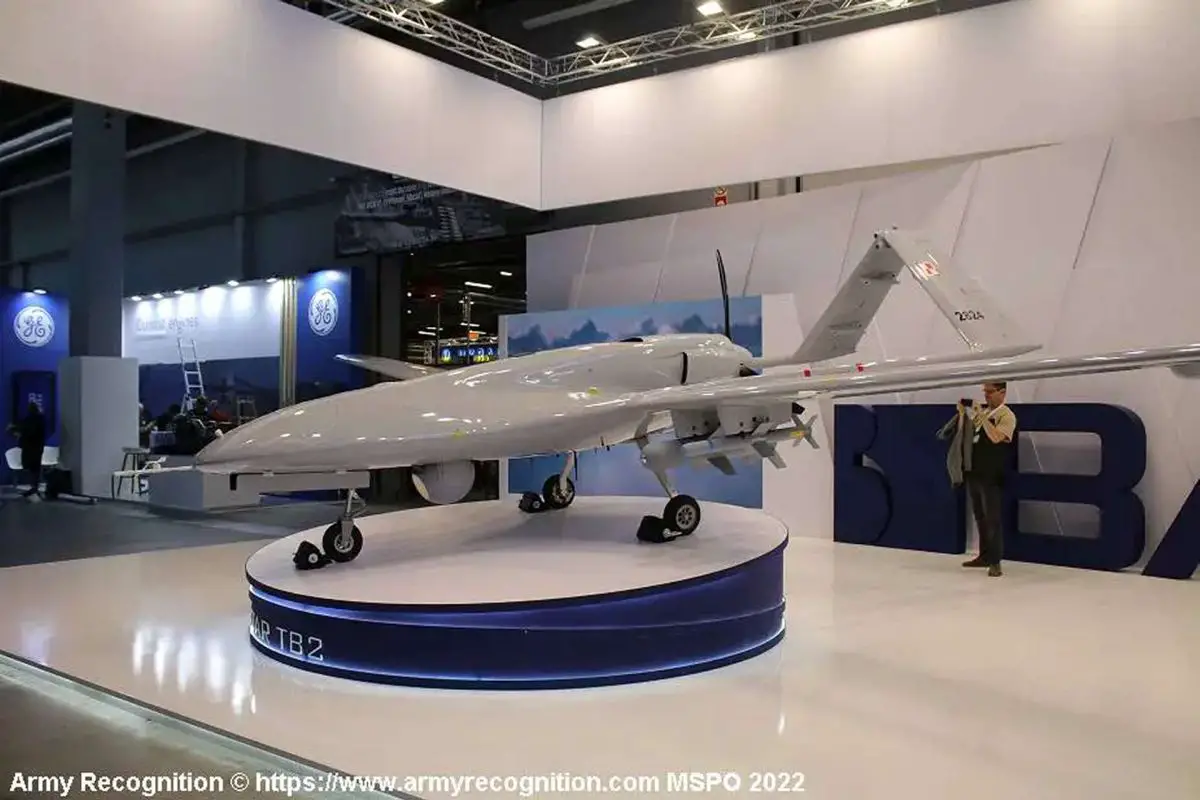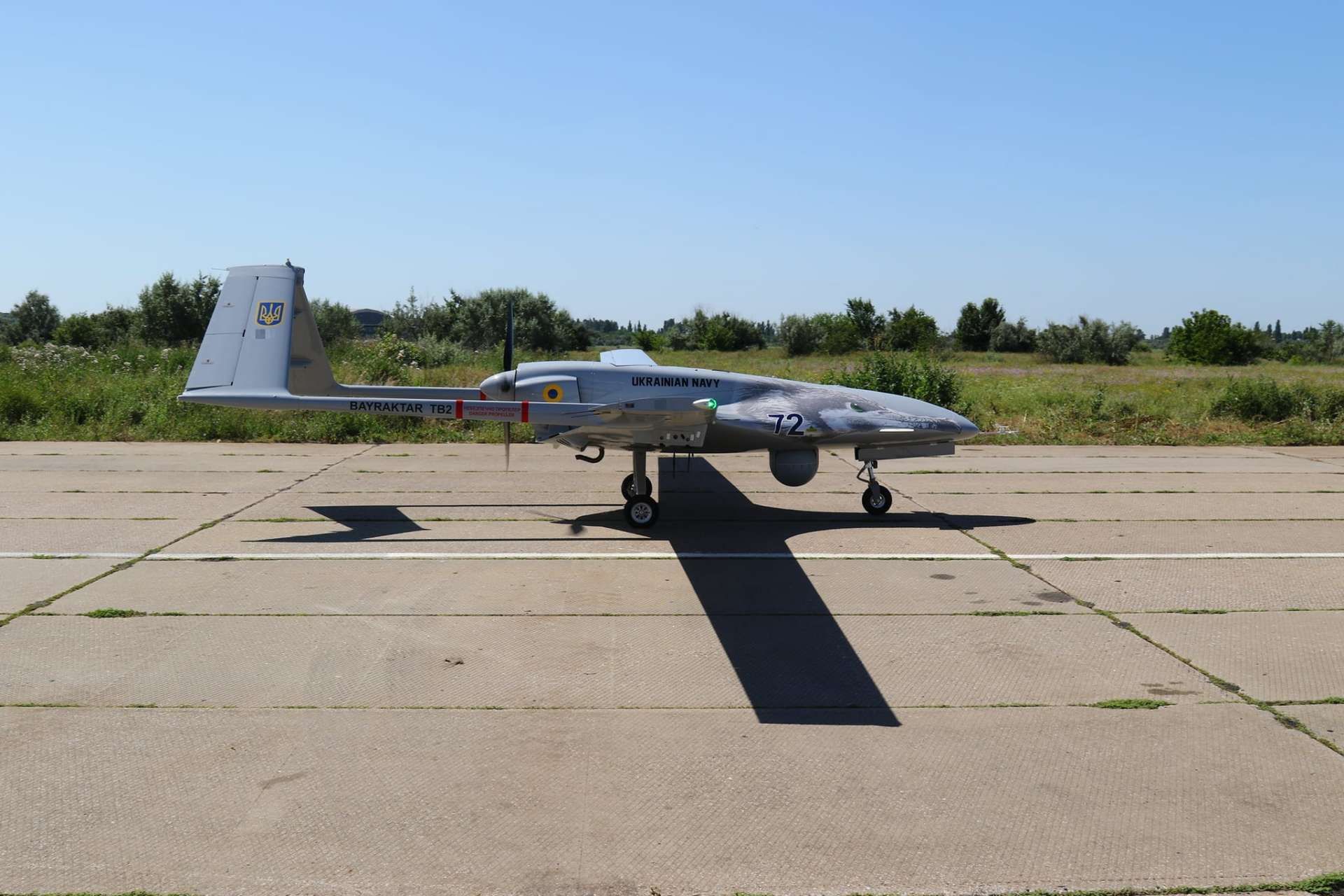Breaking news
Poland receives the last batch of Turkish Bayraktar TB2 unmanned aerial vehicles.
On May 16, 2024, the Polish Armed Forces reported that a ceremony at the 12th Unmanned Aerial Vehicle Base in Mirosławiec marked the completion of the deliveries of the Bayraktar TB2 unmanned aerial vehicles (UAVs) to the Polish Armed Forces. The ceremony was attended by the Secretary of State at the Ministry of National Defense, Paweł Bejda, along with representatives from the Polish military.
Follow Army Recognition on Google News at this link

The Bayraktar TB2 drone has been used in various conflicts, including in Syria, Libya, and Ukraine, where it has demonstrated its capabilities in surveillance and precision strikes. Featuring a triple-redundant avionics system, the TB2 can support both day and night operations. (Picture source: Army Recognition)
The Bayraktar TB2 drones were tested in Turkey before their delivery to Poland in April 2024. After arriving in Poland, they underwent final tests, which they successfully passed, confirming their acceptance by the user. The fourth set delivered includes six unmanned aerial vehicles, three ground control stations, EO/IR sensors, weapons, and spare parts. The first three sets were received by the Polish Armed Forces in the autumn of 2022 and the spring and autumn of 2023.
Training for Polish operators and instructors was conducted by Baykar Technologies, with sessions at the 12th UAV Base in Mirosławiec and the Air Force Aviation and Engineering Training Center in Dęblin. The contract also ensures the transfer of technology necessary for depot-level maintenance within the Polish Armed Forces. This includes maintenance and repair capabilities for engines, ground control stations, and EO/IR sensors.
The deliveries are part of an agreement signed on May 24, 2021, between the Polish Armament Inspectorate and Baykar Technologies. This agreement included four Bayraktar TB2 UAV sets along with ground control stations, SAR radars, simulators, training packages, logistics support, and spare parts. The contract also covered the acquisition of MAM-L and MAM-C smart munitions, which have been developed by the Turkish company Roketsan for unmanned aerial vehicles (UAVs), light attack aircraft, fighter aircraft, and air-to-ground missions. Additionally, the contractor will transfer the necessary technologies to enable in-house maintenance capabilities within the Polish Armed Forces, including the servicing and repair of engines, ground control stations, and EO/IR sensors.

Designed for reconnaissance and combat missions, the Bayraktar TB2 can carry up to 150 kilograms of payload, including sensors and laser-guided munitions. (Picture source: Ukrainian MoD)
The Bayraktar TB2 is a medium-altitude long-endurance (MALE) unmanned combat aerial vehicle (UCAV) developed by Baykar Technologies, a Turkish defense company. Designed for reconnaissance and combat missions, it can carry up to 150 kilograms of payload, including sensors and laser-guided munitions. The TB2 has a wingspan of 12 meters, a length of 6.5 meters, and can reach altitudes up to 27,000 feet with an endurance of up to 27 hours. It is powered by an internal combustion engine driving a variable pitch propeller in a pusher configuration, allowing for a cruising speed of 70 knots and a range of 150 kilometers.
The TB2 has been used in various conflicts, including in Syria, Libya, and Ukraine, where it has demonstrated its capabilities in surveillance and precision strikes. It features a triple-redundant avionics system and can perform autonomous taxi, takeoff, and landing. The standard payload configuration includes electro-optical and infrared cameras, a laser range finder, and a laser designator, supporting operations both day and night. The ground control station, built to NATO specifications, supports mission planning and real-time command and control. The TB2's performance in Ukraine has attracted interest from multiple countries, leading to its acquisition by various defense forces.
In addition, the Polish Ministry of National Defense is considering the establishment of a new branch of the Armed Forces focused on unmanned systems, tentatively named "Unmanned Forces." This proposal aligns with a broader trend in military developments globally, as various nations are integrating unmanned systems into their defense structures to enhance operational efficiency and mitigate risks to human soldiers. The US Air Force, for example, is reoptimizing its structure to form deployable and in-place combat wings that integrate UAVs and other unmanned systems, ensuring they are ready from the start of any conflict. In Europe, the CDU/CSU parliamentary group recently proposed creating a "drone army" to enhance the capabilities of the German air force, land forces, and navy, focusing on both reconnaissance and combat drones, inspired by Ukraine's extensive use of drones in combat.


























